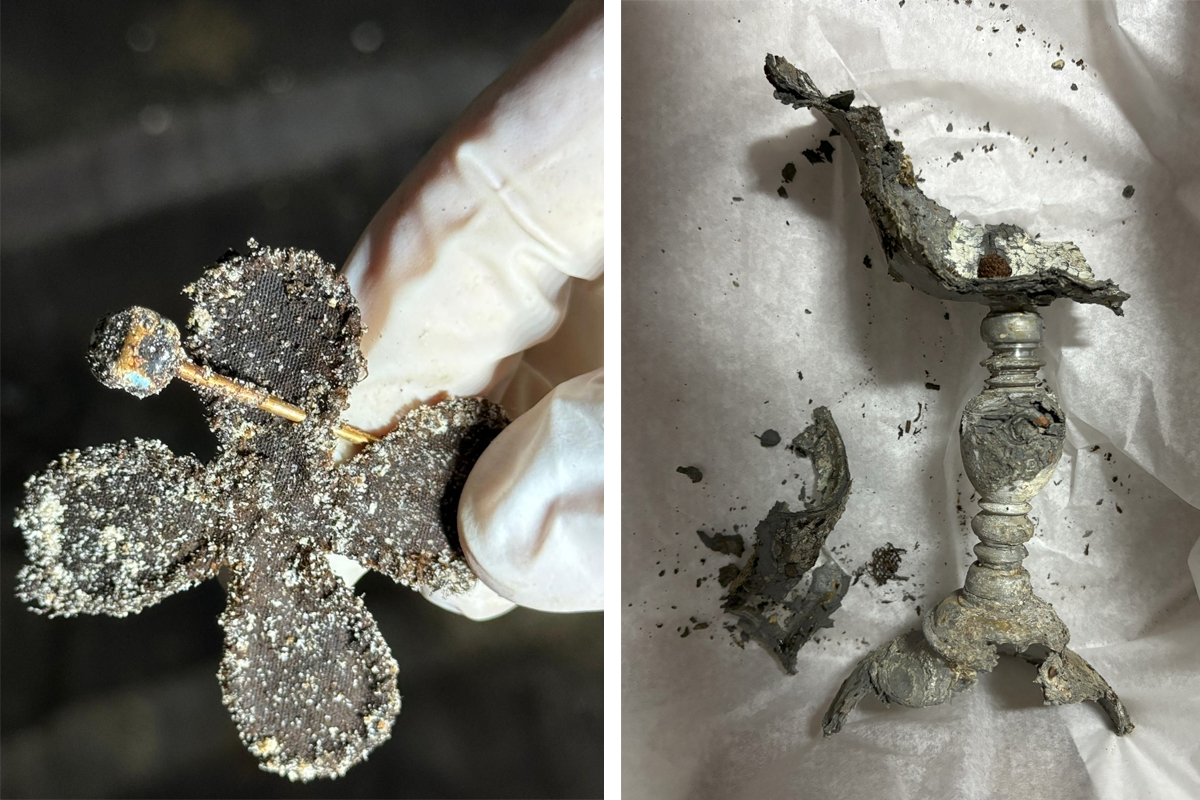Archaeologists have uncovered two crypts in the collegiate church in Łowicz containing the Primates of Poland.
In the Latin Church, a primate is an archbishop who has jurisdictional authority (title of authority) or ceremonial precedence (title of honour).
Historically, primates of certain sees were granted privileges that includes the authority to call and preside over national synods, to preside at the installation of archbishops in their sees, and the right to crown the nation’s sovereign.
The crypts contain the tombs of Henryk Firlej (1574–1626), Andrzej Leszczyński (1608-1658), and Wacław Leszczyński (1605-1666), each of whom served as archbishop of Gniezno, a city in central-western Poland.

All three tombs were found intact, in which the funeral robes, shoes, and a bishop’s miter sewn with gold thread have been perfectly preserved.
“In one of the tombs we found a gold ring with the Wieniawa coat of arms, a cross – probably gold, and four gold pins with a rock crystal head. In another tomb, the archbishop was interred holding a cross in his right hand, along with a gold ring and a cross on a chain. We hope to find a golden chalice and a paten as well,” said archaeologist Monika Kamińska.
According to the researchers, the discovery of the tombs have provided new insights into how the bishops were prepared for their funerals. In particular, how they were dressed, the chasubles they wore, and what fabrics were used to line their coffins.
Archaeologists also discovered a third crypt that the researchers suggest could contain the tomb of Primate Jan Przerębski (1519-1562).
“The discovery of the crypts of the four primates is of great historical value, but for me it is a discovery of the roots of faith. We are getting to know the Christian culture of our land,” said Bishop Wojciech Osial, Bishop of Łowicz.
Header Image Credit : PAP
Sources : Science in Poland





